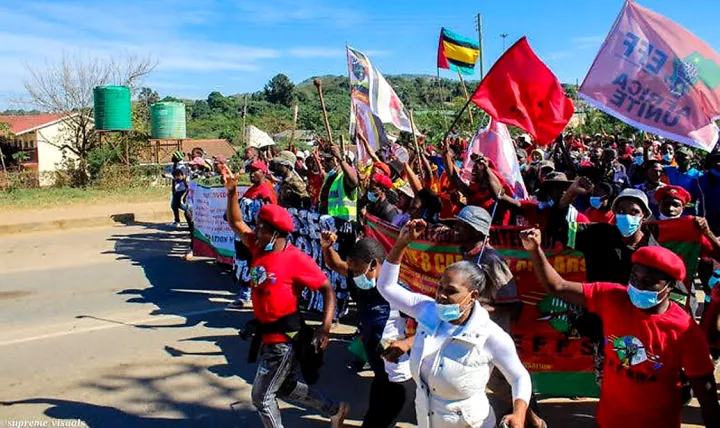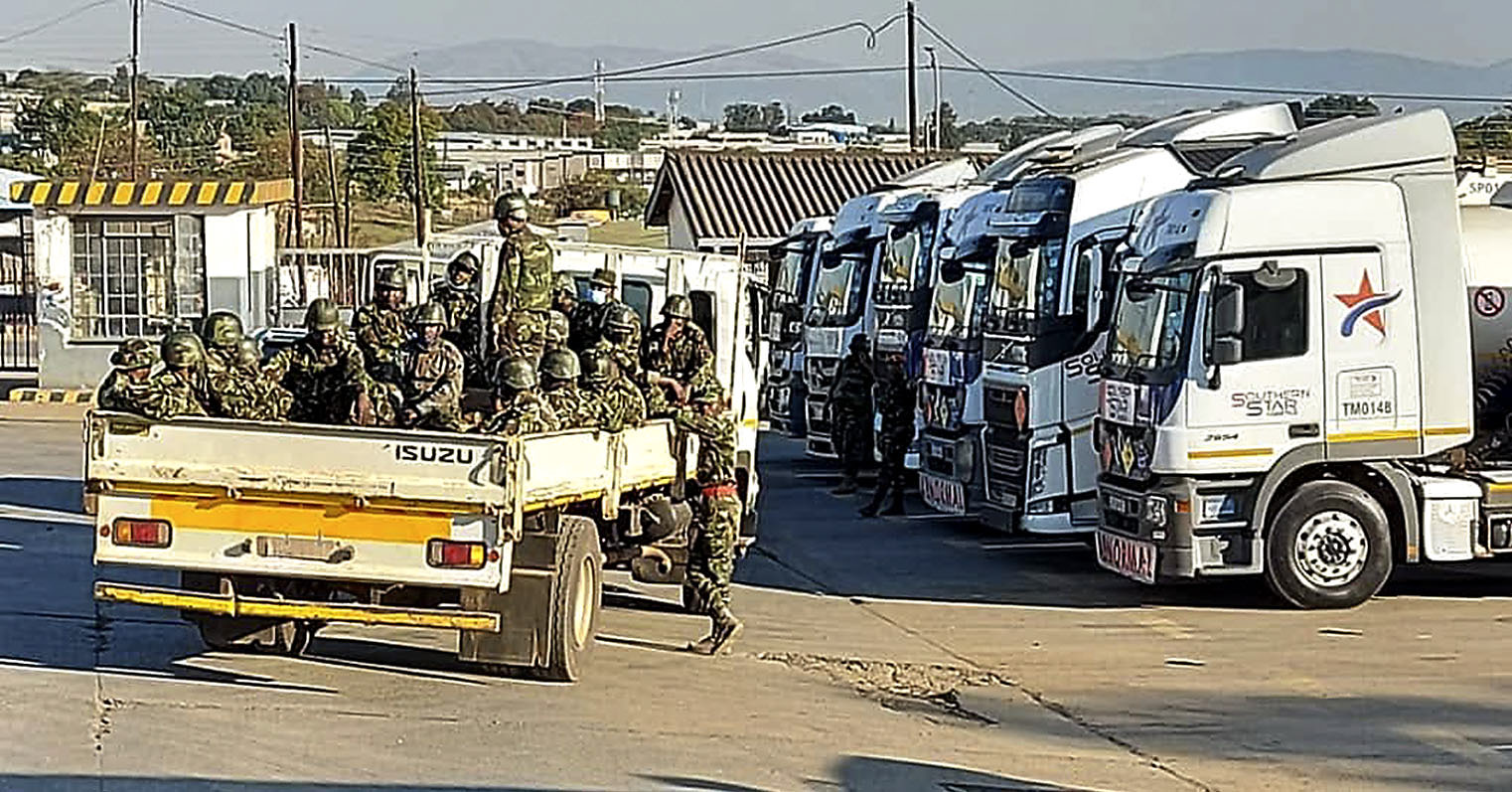MAVERICK CITIZEN OP-ED
Cry for regional help: Southern African leaders must stand with Eswatini’s people in their demands for urgent political and economic reform

What regional leaders do next, particularly Eswatini’s neighbour South Africa, is key to averting an escalating crisis. Eswatini authorities should be urged to acknowledge the grievances of citizens and move expeditiously towards the creation of a constitutional democracy.
Tiseke Kasambala is Chief of Party for the Advancing Rights in the Southern Africa Programme at Freedom House.
Eswatini is in crisis, with dozens of people killed by security forces in recent days. To prevent an escalation in violence and further loss of life, southern African leaders should heed Eswatini citizens’ desperate calls for democratic and economic freedoms.
The recent protests are a culmination of years of frustration with a repressive political dispensation and a weakened economy that has left citizens in poverty and concentrated wealth in the hands of the ruling elite.

Authorities have imposed a curfew, shut down the internet and deployed soldiers to violently quell the protests. (Photo: Supplied)
Eswatini, the last absolute monarchy in Africa, has been ruled by King Mswati III for more than 30 years. His rule has been marked by widespread repression. Political parties are not legally recognised and are banned from contesting elections. Civic space is severely limited. Authorities use draconian laws such as the Suppression of Terrorism Act and the Sedition and Subversive Activities Act to silence critical voices.
Human rights defenders, political activists, journalists and members of trade unions often face arbitrary arrest, beatings, torture and other abuses for speaking out against the government.
Poverty
On the economic front, almost 60% of Eswatini citizens live below the poverty line, and 23% of the country’s 1.2 million people are unemployed — a situation worsened by the Covid-19 pandemic. While citizens scramble to make a living to feed and educate their families, King Mswati and his political cronies stand accused of profligate spending of the country’s much-needed financial resources on their extravagantly luxurious lifestyles.
After several years of sporadic demonstrations, Eswatini’s citizens took to the streets in June 2021 in large numbers to protest against conditions in the country.
The protests were sparked by two incidents. The first was the killing in May of a 25-year-old law student, Thabani Nkomonye, allegedly by members of Eswatini’s notoriously brutal police. Students and other young people took to the streets in protest.
The second was the demand by three parliamentarians that the prime minister be elected by the people, and not selected by the king. Citizens across the country echoed the call and petitioned the government, demanding political reforms. In response, the Eswatini authorities issued a decree banning such petitions, triggering demonstrations throughout the country.
Unprecedented anger
There has been an unprecedented outpouring of anger on the streets, with sporadic looting and some citizens burning properties belonging to the monarchy. In response, the authorities have imposed a curfew, shut down the internet and deployed soldiers to violently quell the protests.
Soldiers and police have shot and killed more than 40 people and injured many more. The security forces have raided the homes of Eswatini citizens and arrested scores of people, including youth and political activists. Those arrested have reported police beatings and torture. To hide the extent of security forces’ brutal response, the authorities have targeted journalists.
On 5 July, the South Africa-based online publication New Frame reported that two of its journalists who were covering the protests were “detained, assaulted and tortured” by security forces, and forced to delete material from their phones and camera.
The regional response has taken several forms. Recognising the root causes of the protests, the governing African National Congress (ANC) in South Africa released a strong statement expressing deep concern about the violence and called for an end to the crisis, the unbanning of political parties and an end to autocracy and the brutal repression of citizens.
SADC steps in
In contrast, the South African government’s Department of International Relations and Cooperation issued a short, lukewarm statement calling for meaningful dialogue. It also called on the security forces to “exercise total restraint and protect the lives and property of the people, in keeping with the country’s constitutional provisions and laws”.
The regional Southern African Development Community (SADC), recognising the urgency of the situation, issued a statement by the chairperson of its organ on politics, defence and security, President Mokgweetsi Masisi of Botswana, and on 4 July dispatched a delegation to Eswatini to meet with the authorities and others.
SADC later reported that the delegation had failed to meet all the relevant actors and would dispatch a second mission.
What regional leaders do next, particularly Eswatini’s neighbour South Africa, is key to averting an escalating crisis. The Eswatini authorities should be pressed to swiftly calm the situation and return the army to their barracks.
Regional leaders must demand justice
SADC should support the creation of an independent commission of inquiry to promptly and transparently investigate the role of the military and other security forces in the killings of civilians and other human rights abuses. Soldiers and other security forces found responsible should be swiftly brought to justice.
The Eswatini authorities should be urged to acknowledge the grievances of citizens and move expeditiously towards the creation of a constitutional democracy. This includes opening political space for national dialogue, unbanning political parties, repealing repressive laws and guaranteeing citizens’ rights to freedom of expression, association and assembly.
Eswatini’s citizens deserve the region’s support. The country’s authorities should be left with no doubt that brutal and repressive responses to citizen dissatisfaction will carry a heavy price.
SADC should make it clear that the region’s economic support to Eswatini through trade and its membership of the Southern African Customs Union will be contingent on the cessation of the abuses of the past weeks, and the delivery of meaningful political and economic reforms. DM/MC















 Become an Insider
Become an Insider
Comments - Please login in order to comment.